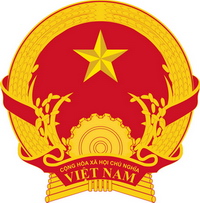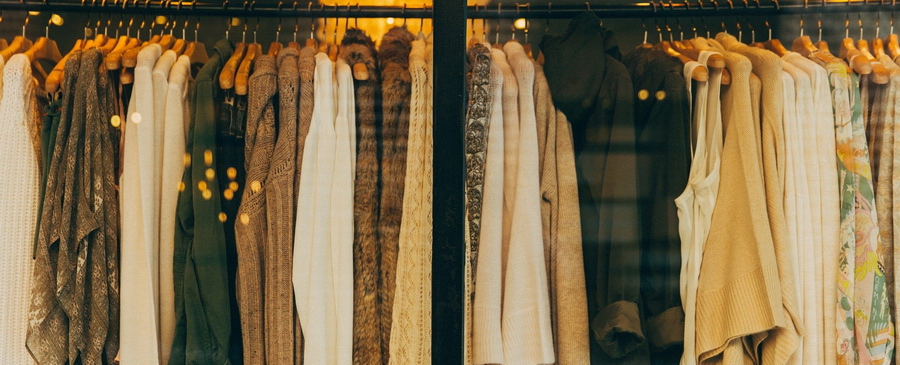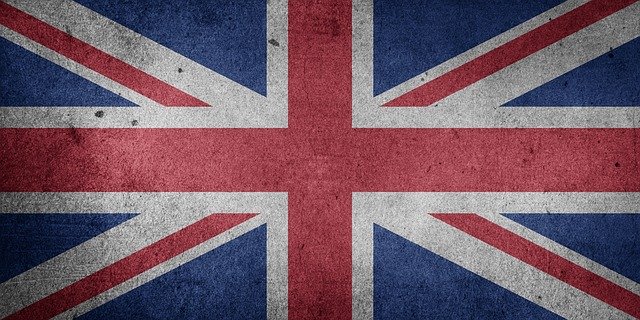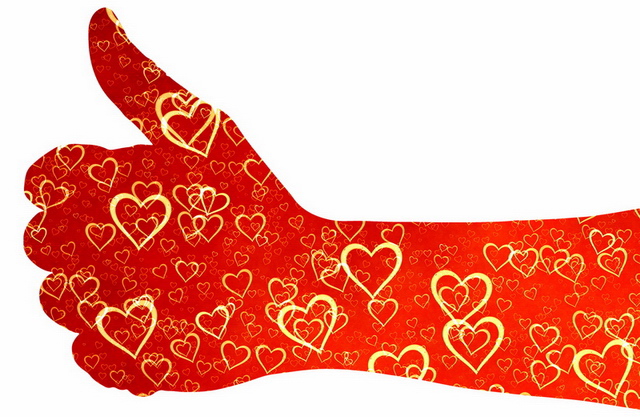About Vietnam


Flag of Vietnam Coat of Arms of Vietnam
Official name: The Socialist Republic of Vietnam
Capital: HANOI (HÀ NỘI)
Population: 96,208,984 inhabitants (2019) ; Men: 49.8% – Women: 50.2%
(Source: GENERAL STATISTICS OFFICE of VIETNAM / www.gso.gov.vn)
Mainland territory: 331.211,6 km²
Coastline: 3,260 km
Inland coordinates :
– Latitude: 102o10’ – 109o30’ East
– Longitude: 08o30’ – 23o20’ North
Lying on the eastern part of the Indochinese peninsula, Vietnam is a strip of land shaped like the letter “S”. China borders it to the north, Laos and Cambodia to the west, the East Sea to the east and the Pacific Ocean to the east and south.
The country’s total length from north to south is 1,650km. Its width, stretching from east to west, is 600km at the widest point in the north, 400km in the south, and 50km at the narrowest part, in the center, in Quang Binh Province. The coastline is 3,260km long and the inland border is 4,510km.
Vietnam is divided into 58 provinces and 5 municipalities (Hanoi, Ho Chi Minh City, Hai Phong, Da Nang, Can Tho).
Mountain and hill: Mountains and highlands occupy three fourth of the country’s area. The mountain systems stretch from the Northwest border to the east of South Vietnam, with a total length of 1,400 kilometers.
The highest peak: Fansipan 3,143 meters.
Plains: The Red River delta (15,000 km2) & The Mekong delta (40,000 km2).
Major rivers: The total length of all rivers is 41,000 km with a water flow of approximately 300 billion cubic meters and 3,100 km of channels.
– The Red River is 1,149 km long, of which 510 km runs on Vietnamese territory.
– The Mekong River is 4,220 km long, of which 220 km runs on Vietnamese territory.
Vietnam time zone is GMT/UTC +7h (year-round).
Vietnam is 7 hours ahead of London, 6 hours (in winter) and 5 hours (in summer) ahead of Paris, 12 hours ahead of New York, the US and 3 hours behind Sydney…
You can check the worldwide time zones here: http://www.timeanddate.com/time/map
The electrical outlets in Vietnam are in the 220V – 240V range, which is typical in European, African and Asian countries, as well as Australia.
Most power plugs sockets are two-pinned with rounded pins, except in international-standard hotels.

Drinking tap water in Vietnam isn’t advisable. The preferred option is to use bottled water, which is very cheap and widely available throughout the country.
Additionally, ice should be avoided unless served at a high-end restaurant or hotel.


Vietnam is located in both a tropical and a temperate zone. It is characterized by strong monsoon influences but has a considerable full of sunlight, a high rate of rainfall, and high humidity. Regions located near the tropics and in the mountainous regions are endowed with a temperate climate.
With a complicated weather picture, there’s no one particular season to recommend as the best time for visiting Vietnam.
It will depend on which month you travel to Vietnam and what part you visit: the South, the Central or the North.
– In the South: the weather is hot year-round. There are only 2 seasons: rainy season (May to September) and dry season (October to April).
– In the North: From Dec. to Mar. the weather is cold with high moisture.
– The Coastal stretch from Hue down to Nha Trang city, the weather is great from January through to July, while Saigon and the Mekong Delta are best from October through to February or March.
Overall, autumn (Sept.-Dec.) and spring (March and April) are probably the most favorable seasons if you’re covering the whole country.
Basically, the preferred clothing choice for the warmest months is likely to include synthetic or light cotton trousers, shorts, or tops that will quickly dry.
– Additionally, on visits to religious temples or monuments, there is a need to cover up so it helps to pack a shawl or scarf for the shoulders and head area.

Internet access is now easily found everywhere, from big cities to the countryside.
All guest houses, hotels, resorts, restaurants, coffee shops… can provide internet access.
You also can buy a 3G, 4G sim card easily at a reasonable price.


Generally, it should be okay to travel in Vietnam while solely relying on English. Travelers in the touristy areas or major cities are like to find more locals that speak English to an acceptable standard but will find things more difficult in the remote, rural regions that aren’t on the tourist trail.
However, it can benefit the travel experience to pack a local phrase-book and use a few of the common local words, such as how much is that, hello, goodbye, thank you, etc.
Besides, your smartphone will help you a lot with many free translation apps for IOS and Android. Don’t forget to install some before you arrive in Vietnam. Take advantage of them!
Yes, some vaccines are recommended for Vietnam.
It is a good idea to ensure you are up to date with all the common childhood vaccinations before visiting Vietnam.
The CDC and WHO recommend the following vaccinations for Vietnam: hepatitis A, hepatitis B, typhoid, Japanese encephalitis, rabies, meningitis, polio, measles, mumps and rubella (MMR), Tdap (tetanus, diphtheria and pertussis), chickenpox, shingles, pneumonia and influenza.
Booking - Payment - Cancellation
With us, you get exceptional personal assistance before, during, and after your holiday.
Budget is important and we strive to get your dream vacation within the budget you’ve set for it. There’s no pressure to go above and beyond what you’re comfortable with. We provide honest advice about all resorts and destinations to help you choose the perfect resort for you.
You also benefit from our extensive personal connections which carry a certain gravitas when needing anything addressed. we can contact you during your trip and provide advice on what to eat, what to do and give you a hand whenever you need such as you get sick on the way, lost things…
Right after you have found a tour that you would like to book, please click on “Select” and fill in your booking details (the departure date that you would like to go, the package, the number of people, your full name, nationality, email address and any special requests).
Once we receive your request, we will send you an email to confirm and our payment policy information. With this, you can choose your preferred payment method and pay us.
You can change your dates, if needed, at no additional cost as long as you give sufficient advance notice and availability exists.
Cancellations of the tours usually involve a cancellation fee, which depends on how far in advance that you cancel.
Just please let us know by sending us an email mentioning your special requirements, we will work with both you and the local services providers (restaurant, hotels, transportation…) to ensure that we can meet your needs.
For example, if you are vegetarian or have any food allergies, or if you are handicapped or have physical limitations…
All travel arrangements should be booked at least 48 hours or 3 days in advance.
For holiday packages and custom-made tours, we strongly recommend booking with at least three weeks’ notice.
For larger groups, we recommend booking with a few months’ notice. The advanced booking gives us a better chance to reserve the very best choice of accommodation for you.
Deposit for the tour must be paid right after we confirm the service, the rest will be paid before you arrive in Vietnam.
For some special cases, we accept your payment upon arrival.
After the full payment, you will receive all confirmation, voucher by email.
- For a package tour, all travel services will be arranged by us. Normally, you don’t need any vouchers during your trip.
- For hotel/resort booking, we will send you, by email, a voucher as proof of reservation in case the hotel/resort needs it.
The travel documents including the receipt, the final itinerary, detailed travel services, tour guides info, travel tips, notice, etc…will be sent you by email.
We offer discounts for children for most travel services. The discount depends on the age of the child and the type of service being offered.
Please contact us for further information.
Do's and Don'ts

- Store your cash, credit cards, airline tickets and other valuables in a safe place. Most 4-star hotels have in-room safes, otherwise ask the reception to keep your valuable things in their deposit facility.
- Take a hotel business card from the reception desk before venturing out from your hotel. This will make your return to the hotel in a taxi or cyclo much easier.
- Carry a roll of toilet paper in your daypack on long excursions from your base hotel. You never know when you might need it!
- Dress appropriately. Not only for the prevailing weather but also not to offend the local people. Vietnamese have conservative dress codes, and it is only in larger cities that these codes are a little more relaxed. Do not wear revealing clothing.
- If invited into a home, always remove your shoes at the front door when entering.
- Ask for permission when taking a photograph of someone. If they indicate that they do not want you to, then abide by their wishes. DO NOT offer money or push the issue.
- Drink plenty of bottled water. During the summer months, you should be drinking a minimum of two liters per day. If you drink tea, coffee & alcohol you should increase your water intake accordingly as these will help to dehydrate you.
 Never carry more money than you need when walking around the streets. Do not wear large amounts of jewelry.
Never carry more money than you need when walking around the streets. Do not wear large amounts of jewelry.
- Don’t be paranoid about your security; just be aware of your surroundings.
- Don’t wear singlets, shorts, dresses or skirts, or tops with low-neck lines and bare shoulders to Temples and Pagodas. To do this is considered extremely rude and offensive.
- Avoid giving empty water bottles, sweets and candies or pens to the local people when trekking through ethnic minority villages. You cannot guarantee that the empty bottles will be disposed of in a correct manner, and the people have no access to dental health. If you want to give pens, ask your guide to introduce you to the local teacher and donate them to the whole community.
- Never sleep or sit with the soles of your feet pointing towards the family altar when in someone’s house.
- Never lose your temper in public or when bargaining for a purchase. This is considered a serious loss of face for both parties. Always maintain a cool and happy demeanor and you will be reciprocated with the same.
- Do not try to take photographs of military installations or anything to do with the military. This can be seen as a breach of national security.
- Never take video cameras into the ethnic minority villages. They are considered to be too intrusive by the local people.
The above advice is meant to help you have a perfect trip to Vietnam. Do not be overly paranoid though.
Generally, Vietnamese people are very appreciative if they see you trying to abide by the customs, and very forgiving if you get it wrong or forget. If you make the effort, you will be rewarded.
Visa for Vietnam
Yes, for citizens of most countries, there is a need to apply for a visa before traveling.
However, there are a few countries that are granted a visa exemption of 14 – 30 days. If you are planning a short stay in Vietnam, it is worth checking the latest exemption list to see if your home nation is included.
You can have your visa on arrival to Vietnam through Vietcala Travel. It is very simple, fast, inexpensive and it’s surely an easy way to get your visa.
It will take around 3-4 working days to get your visa approval letter (sent to you by email). A copy of your Approval Letter will also be forwarded on your behalf to the Immigration checkpoints where your international flight will land. The Immigration officers already have your documents and he will issue your entry visa quickly.
Please note that you can have your Visa on arrival at only 03 Vietnam International Airports: Noi Bai (in Hanoi), Danang (in Danang City) and Tan Son Nhat (in Ho Chi Minh City). If you arrive in Vietnam by land or sea, you must get a full visa at a Vietnam Embassy before your departure.
Vietnam offers visa exemptions to citizens holding a regular valid passports from 24 countries as mentioned below:
| AREA | No. | COUNTRY | TERM OF RESIDENCE |
| ASIA | 1 | Brunei | Less than 14 days |
| 2 | Cambodia | Less than 30 days | |
| 3 | Indonesia | Less than 30 days | |
| 4 | Japan | Temporarily Suspended | |
| 5 | Kyrgyzstan | Less than 30 days | |
| 6 | Laos | Less than 30 days | |
| 7 | Malaysia | Less than 30 days | |
| 8 | Myanmar | Less than 14 days | |
| 9 | Philippines | Less than 21 days | |
| 10 | Singapore | Less than 30 days | |
| 11 | South Korea | Temporarily Suspended | |
| 12 | Thailand | Less than 30 days | |
| EUROPE | 1 | Belarus | Temporarily Suspended |
| 2 | Denmark | Temporarily Suspended | |
| 3 | France | Temporarily Suspended | |
| 4 | Finland | Temporarily Suspended | |
| 5 | Germany | Temporarily Suspended | |
| 6 | Italy | Temporarily Suspended | |
| 7 | Norway | Temporarily Suspended | |
| 8 | Russia | Temporarily Suspended | |
| 9 | Spain | Temporarily Suspended | |
| 10 | Sweden | Temporarily Suspended | |
| 11 | United Kingdom | Temporarily Suspended | |
| SOUTH AMERICA | 1 | Chile | Less than 90 days |
Notes on visa exemptions:
- As of Mar. 21, 2020, Vietnam has temporarily suspended visa exemptions for citizens from Belarus, Russia, and Japan.
- Starting Mar. 8, 2020 Vietnam has temporarily suspended visa exemptions for citizens of the European Union, the United Kingdom, and as well as other countries with more than 500 cases or grow more than 50 cases a day.
- As of Feb. 29, 2020 visa exemptions for South Koreans have temporarily suspended until further notice, and as of Mar. 2, 2020 visa exemptions for Italians will also be temporarily suspended.
- The exemptions listed above for Sweden, Norway, Denmark, Belarus, Finland, Japan, South Korea, and Russia are valid until Dec. 31, 2022.
- The exemptions listed above for the United Kingdom, France, Germany, Spain, and Italy are valid until June 30, 2021.
- Spouses or children of Vietnamese citizens are allowed to stay in the country without a visa for six months and must show papers proving their eligibility.
Source: Vietnam.travel
When you arrive in Vietnam, you can bring the maximum amount of the followings; otherwise, it is mandatory to declare and pay import taxes:
DUTY-FREE:
- Cigarettes: 200
- Cigars: 20
- Raw tobacco: 250 grams
- Liquor: 1.5 liters
- Perfume and jewelry for personal use
- Souvenirs and gift items valued at not more than VND 10,000,000 (around US$ 450).
MATERIALS UNDER DECLARATION:
There are no restrictions on the amount of currency, gold, precious metals and stones. However, you have to declare on the customs forms provided that your luggage includes:
- Foreign currency: above US$ 5,000
- Vietnam Dong: above VND 15,000,000
- Drafts, cheques or precious metals (silver, platinum), gemstones with the value of VND 300,000,000 or more
- Gold: above 300gr
- Gold and jewelry not for personal use
- Videotapes, CDs: CDs and tapes are often kept for screening and returned to you after a few days
BANNED MATERIALS:
Things below should be excluded from your luggage:
- Weapon, ammunition, explosives and inflammable objects
- Military technical equipment; drugs, opium and other narcotics
- Anti-government literature; pornographic literature, etc.
- On top of this; antiques, some types of precious stones, wild animals, rare and precious plants listed in Vietnam’s red-book could not be exported.
NOTES:
- From 15 November 2010, arrival-departure forms are exempted for all visitors in all international airports and 12 border checkpoints in Vietnam. Thus, it is likely that you may not have to fill in any form when you visit Vietnam.
- You should not put money, jewel, document, important samples… in your baggage. Baggage should be covered and locked carefully.
- You should not put breakable materials such as china, electronic, bottle, jar… inside your baggage.
